All the ways Liz Truss or Rishi Sunak as prime minister would be bleak for LGBTQ+ rights
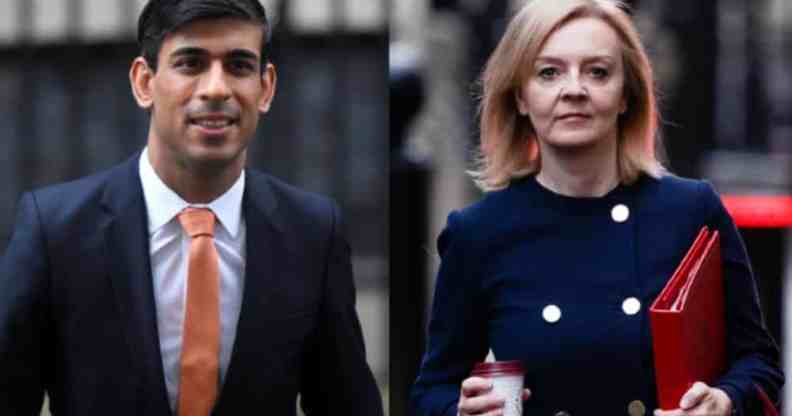
Rishi Sunak (L) and Liz Truss will battle it out to be the next prime minister. (Peter Summers/David Cliff/NurPhoto)
After a week of smear campaigns, anti-trans dogwhistles and secret voting, the Tory leadership race has finally been narrowed to two candidates.
Liz Truss and Rishi Sunak will battle it out to become the UK’s next prime minister after nine other candidates were booted from the race. Penny Mordaunt, Kemi Badenoch, Tom Tugendhat, Jeremy Hunt and Nadhim Zahawi are among the Tories who failed to make it to the final two.
The Conservative Party membership will now be faced with the choice of Truss or Sunak, two senior Tories who served in prominent positions in Boris Johnson’s Cabinet. Liz Truss has been labelled the “true blue” candidate, while Rishi Sunak is the most popular among his fellow Tory MPs.
As the Conservative Party leadership race rumbles on, we take a look at where both Liz Truss and Rishi Sunak stand on LGBTQ+ rights.
Liz Truss – the ‘true blue’ candidate and her ‘war on woke’
Liz Truss was first elected as a Conservative MP for South West Norfolk in 2010. Since then, she’s served as junior education minister, environment secretary, lord chancellor and as justice secretary. Since 2017, she has served as chief secretary to the treasury, international trade secretary and as foreign secretary.
However, it’s Truss’ role as minister for women and equalities that is most telling about her position on LGBTQ+ rights.
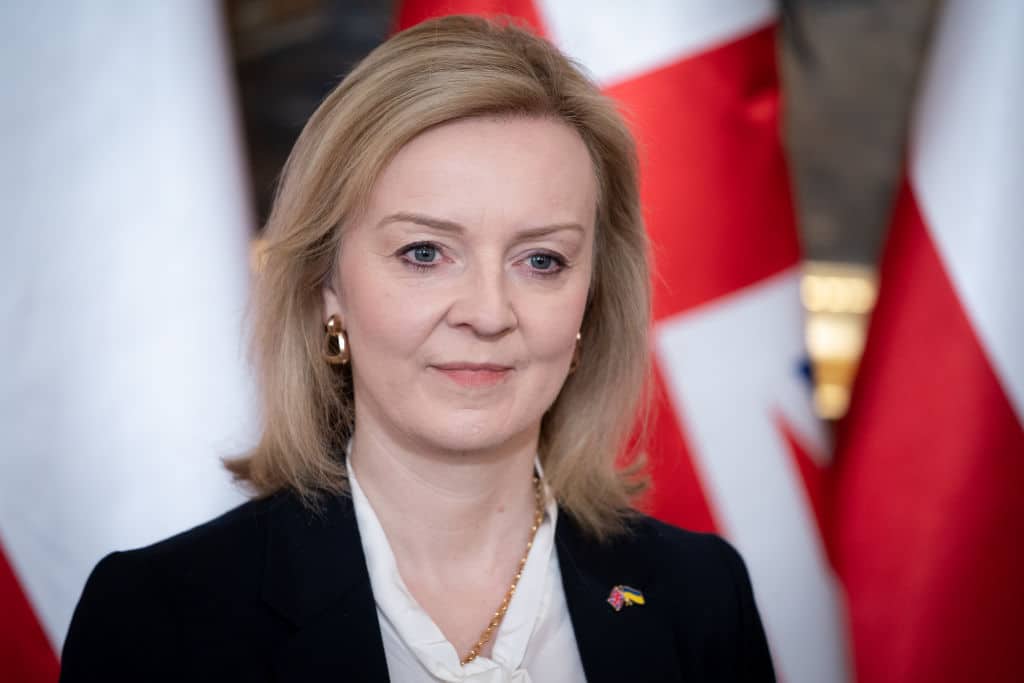
Liz Truss meets Polish Prime Minister at Chancellery in Warsaw, Poland, on 5 April, 2022. (Mateusz Wlodarczyk/NurPhoto via Getty)
Since Truss took over the equalities brief in 2019, the government has flipped from one crisis to the next in its handling of LGBTQ+ rights. Shortly after she was appointed in the role, Truss promised to move away from the “identity politics” of the left. She faced backlash (and mockery) when she suggested the equalities office should be renamed the “Ministry of Freedom”, and she has repeatedly positioned herself at the centre of the Tories’ so-called “war on woke”.
Truss is well-versed in using vague rhetoric about “identity politics” and “cancel culture” in a bid to drum up support among her right-wing support base. In a Daily Mail article published on Thursday (21 July), Truss promised she would “stand up” to people who “talk down” to Britain if she becomes the country’s next prime minister.
“I reject dehumanising identity politics, cancel culture and the voices of decline,” she said.
Truss abandoned Gender Recognition Act reform and failed to ban conversion therapy
Vague rhetoric aside, Truss has repeatedly failed to advance LGBTQ+ rights in any meaningful way since she joined the equalities office in 2019. In 2020, she faced strident criticism from the trans community when she scrapped planned reforms to the Gender Recognition Act (GRA) which would have streamlined the process and made it easier for trans people to change their legal gender.
Instead of introducing self-identification, as was government policy before Truss’ time in office, the government instead reduced the cost of legal gender recognition and digitised the process. Many trans people expressed disappointment with the failure to introduce self-identification – if adopted, it would have allowed trans people to legally change their gender without a diagnosis of gender dysphoria.
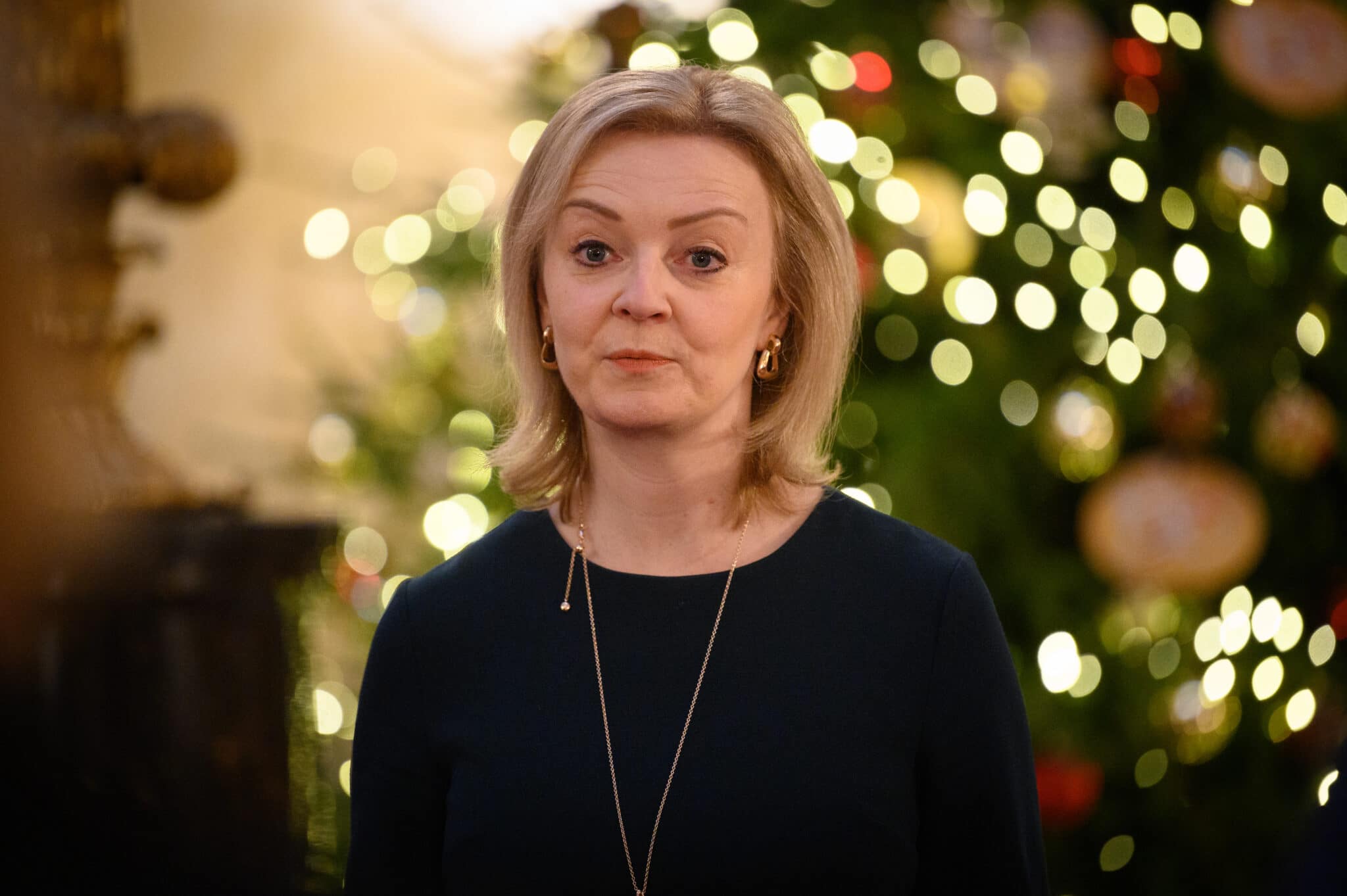
Liz Truss, the UK’s minister for women and equalities. (Leon Neal/Getty)
Speaking at the Conservative Party conference in 2021, Truss defended the decision to scrap GRA reforms, saying: “It wouldn’t be right to have self-identification with no checks and balances in the system.”
In addition to her failure to reform the the GRA, Truss faced sustained criticism for the collapse of a much-hyped ban on conversion therapy. Legislation has been promised numerous times since 2018, but nothing has materialised.
Throughout her time in the equalities office, Truss repeatedly promised to ban conversion therapy, but the whole thing eventually collapsed when PM Boris Johnson intervened. In April, Downing Street announced it was scrapping the ban altogether. In the face of backlash, the prime minister backtracked, saying he would ban the practice for lesbian, gay and bisexual people – but not for trans people.
Truss was said to have been “blindsided” by the U-turn. It’s still not entirely clear if Truss supports a fully-inclusive conversion therapy ban, and if she will advance legislation to that effect if she wins the leadership campaign. Mike Freer, who served in the equalities office under Truss, told a PinkNews reception the Tory leadership frontrunners were supportive of a ban that would include trans people, so there could be hope on the horizon yet.
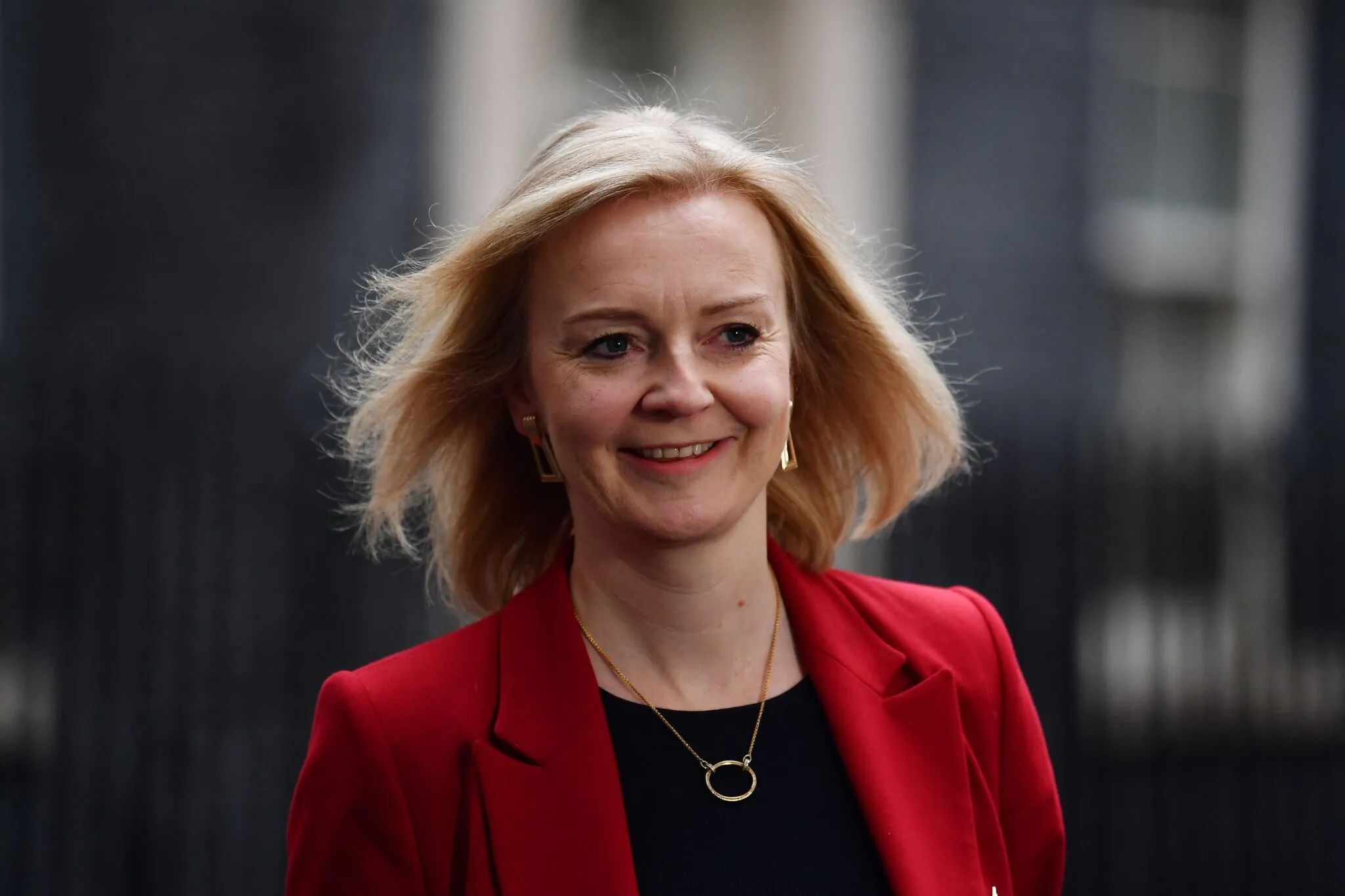
Britain’s equalities minister Liz Truss leaves Downing Street. (Ben Stansall/AFP via Getty Images)
But since launching her leadership campaign, Truss has announced policies that would adversely affect the LGBTQ+ community. One of those is her intention to expand the much-criticised Rwanda scheme if she becomes prime minister – she has said she would consider deporting asylum seekers the government deems “illegal” to Turkey in addition to Rwanda.
Also worth noting is that she failed to respond to the LGBT+ Conservatives, the party’s national LGBTQ+ group, when it asked all the leadership candidates to answer questions on transphobia and their priorities for queer people.
Truss may have voted in favour of same-sex marriage, but she has done little to curry favour with LGBTQ+ people since then.
Rishi Sunak wants to ban trans women from playing sport
Rishi Sunak is an MP for Richmond (Yorkshire) and was first elected in 2015. Since then, he has rapidly ascended through the ranks of the government, serving as junior minister for local government, chief secretary to the treasury, and as chancellor of the exchequer under Johnson.
While Liz Truss has a lengthy track record on LGBTQ+ issues, Rishi Sunak’s stance is a little less clear – as chancellor of the exchequer, he has had little to do directly with advancing (or rolling back) LGBTQ+ rights, but he has made his position increasingly clear when it comes to trans rights.
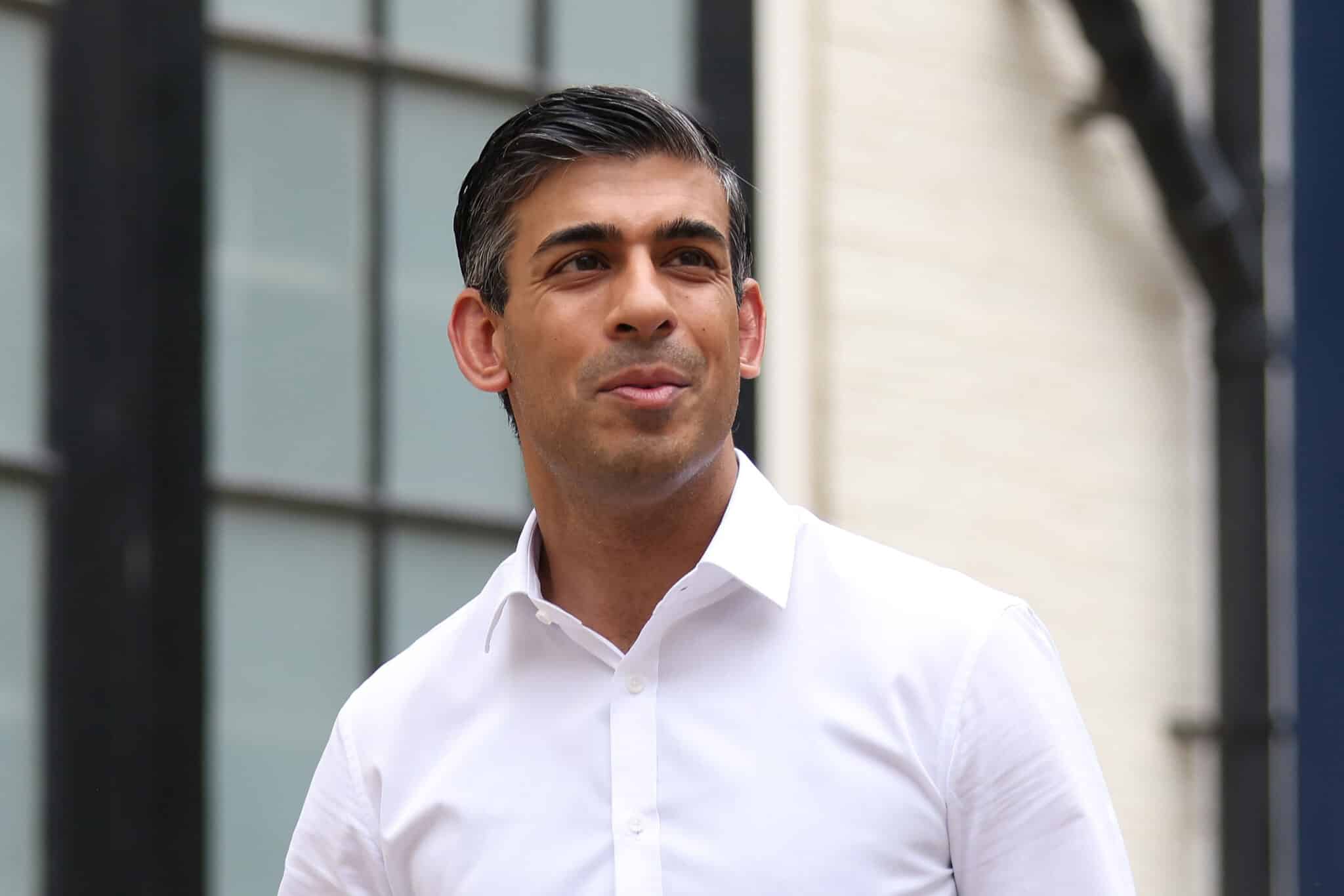
Rishi Sunak, former chancellor of the exchequer. (Hollie Adams/Getty Images)
After launching his leadership bid, an ally of Sunak’s was quoted in the Mail on Sunday saying he would reverse “recent trends to erase women via the use of clumsy, gender-neutral language” if he became prime minister.
The unnamed source said: “We must be able to call a mother a mother and talk about breastfeeding.” The source claimed Sunak would launch a “manifesto for women’s rights” including a commitment to ban trans women from women’s sport.
They said Sunak, as prime minister, would urge schools to be “more careful” on how LGBTQ+ topics are taught. His comments came just weeks after attorney general Suella Braverman, who also launched a leadership bid, said gender dysphoria was spreading by “social contagion” in schools.
Sunak gave credence to the claims when he tweeted the article.
If I become Prime Minister I will protect women’s rights and ensure women and girls enjoy the same freedom most males take for granted in feeling safe from assault and abuse.
Read more below #Ready4Rishi https://t.co/3cXn1rFhca?
https://t.co/h7mlKHV97M
— Ready For Rishi (@RishiSunak) July 10, 2022
Sunak plans to address hate crime and end HIV transmission
What is notable, however, is that Sunak gave among the most in-depth responses to the LGBT+ Conservatives when it approached the leadership candidates and asked about their LGBTQ+ priorities.
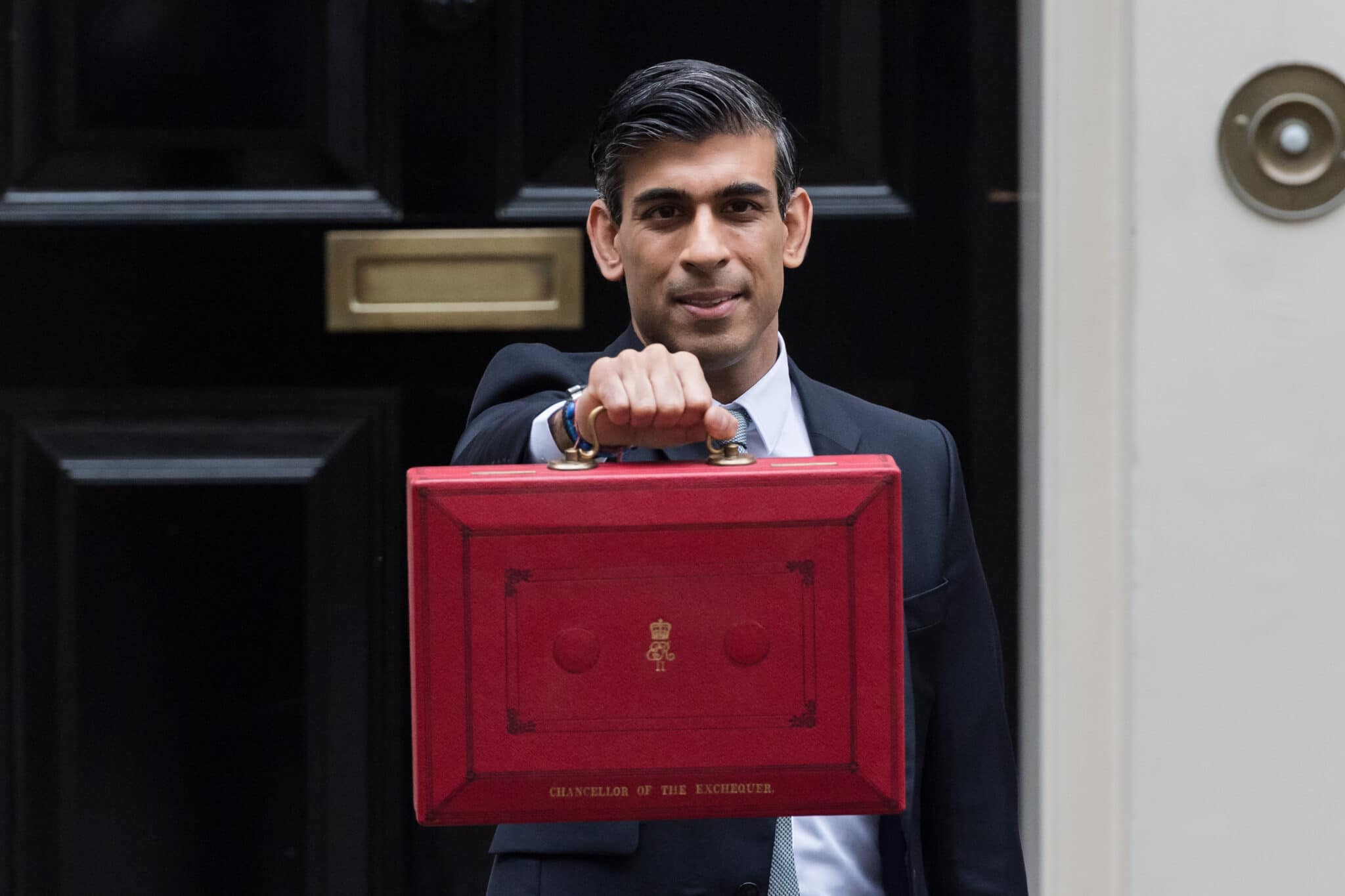
Chancellor of the xxchequer Rishi Sunak holds the Budget box outside 11 Downing Street in central London. (Wiktor Szymanowicz/Barcroft Media via Getty)
Sunak told the LGBT+ Conservatives there are “many areas we need to address to improve the lives of LGBT+ people”. He drew particular attention to hate crime and the goal to end HIV transmission by 2030.
Sunak wrote: “I don’t want anybody in Britain to have to hide who they are or who they love out of fear. I want this to be the safest and greatest country in the world to be LGBT+.”
The LGBT+ Conservatives also asked candidates to comment specifically on “the rising problem of transphobia within the Conservative Party”. Responding to that question, Sunak wrote: “Prejudice against trans people is wrong. The Conservative Party is an open, welcoming family to everybody across society, no matter who they are and irrespective of their background.”
He said disagreements should be “handled with respect and understanding”, adding that “robust debate… on policy issues” should never descend into “personal attacks”.
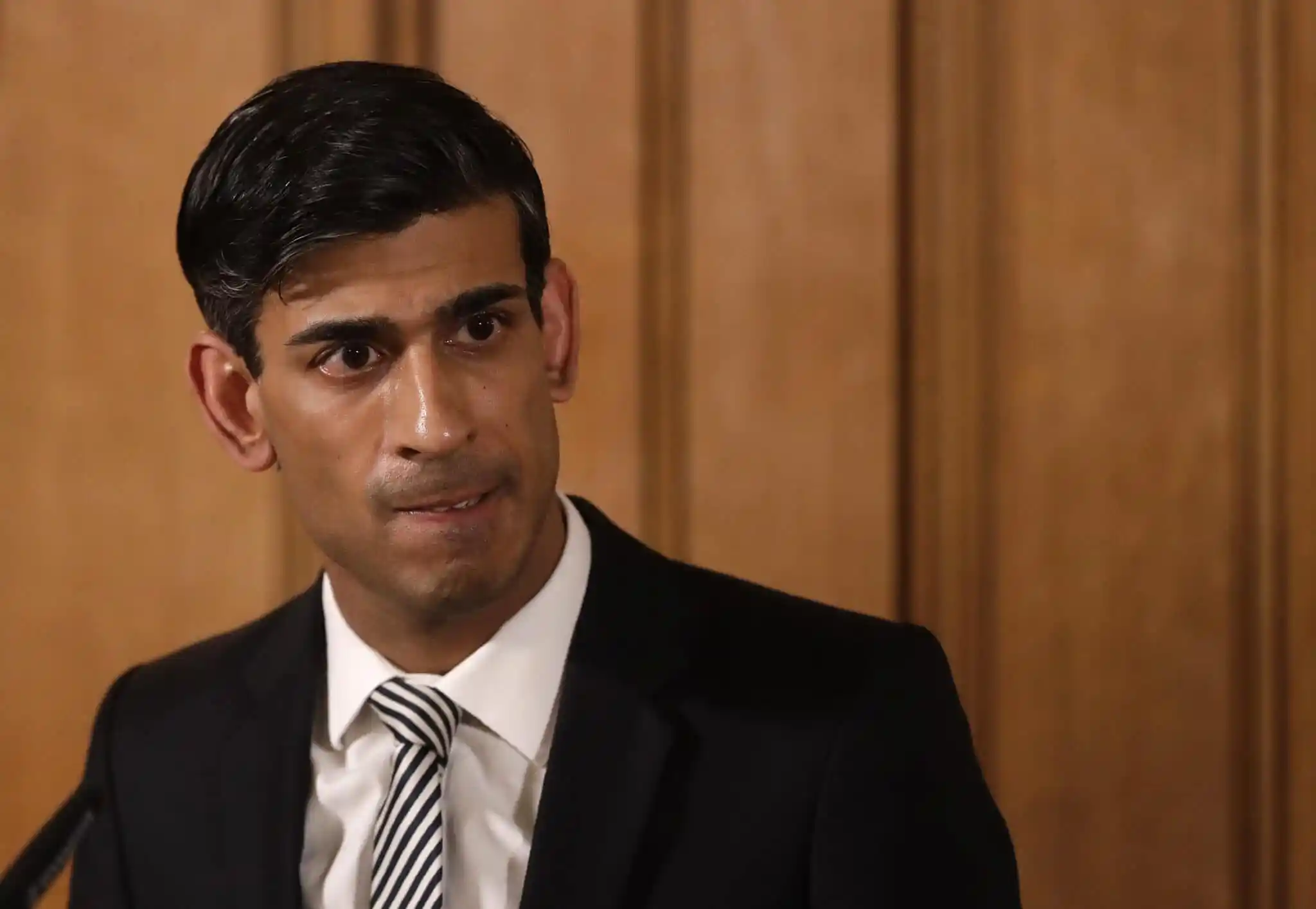
Rishi Sunak pictured at a 2020 press conference. (Matt Dunham/WPA Pool/Getty)
However, Sunak went on to extol the virtues of debate, urging people to listen to each other’s views and to “understand where they’re coming from”.
“As prime minister, I would strive to foster a space in which people feel safe, able to explore complex issues and find a path forward through common ground,” he wrote.
Closing his statement, Sunak said LGBTQ+ members of the Conservative Party should vote for him because he will work “day and night to make Britain the kindest, safest and most vibrant place in the world to be LGBT+”.
Sunak has been condemned for his ‘unseemly’ anti-trans comments
Those comments stand in stark contrast to Sunak’s earlier efforts to throw fuel on the flames of the “culture war” surrounding trans rights. Many will remember him being called out for his “unseemly” comments about trans people when he took part in a Mumsnet Q&A in April.
Sunak said in the Q&A trans people should be “respected”, but that he is of the view “biology is important, is fundamental” when it comes to toilets and sports. He went on to say he “absolutely” agreed with Johnson, who had come under fire for saying trans women shouldn’t compete in women’s sports.
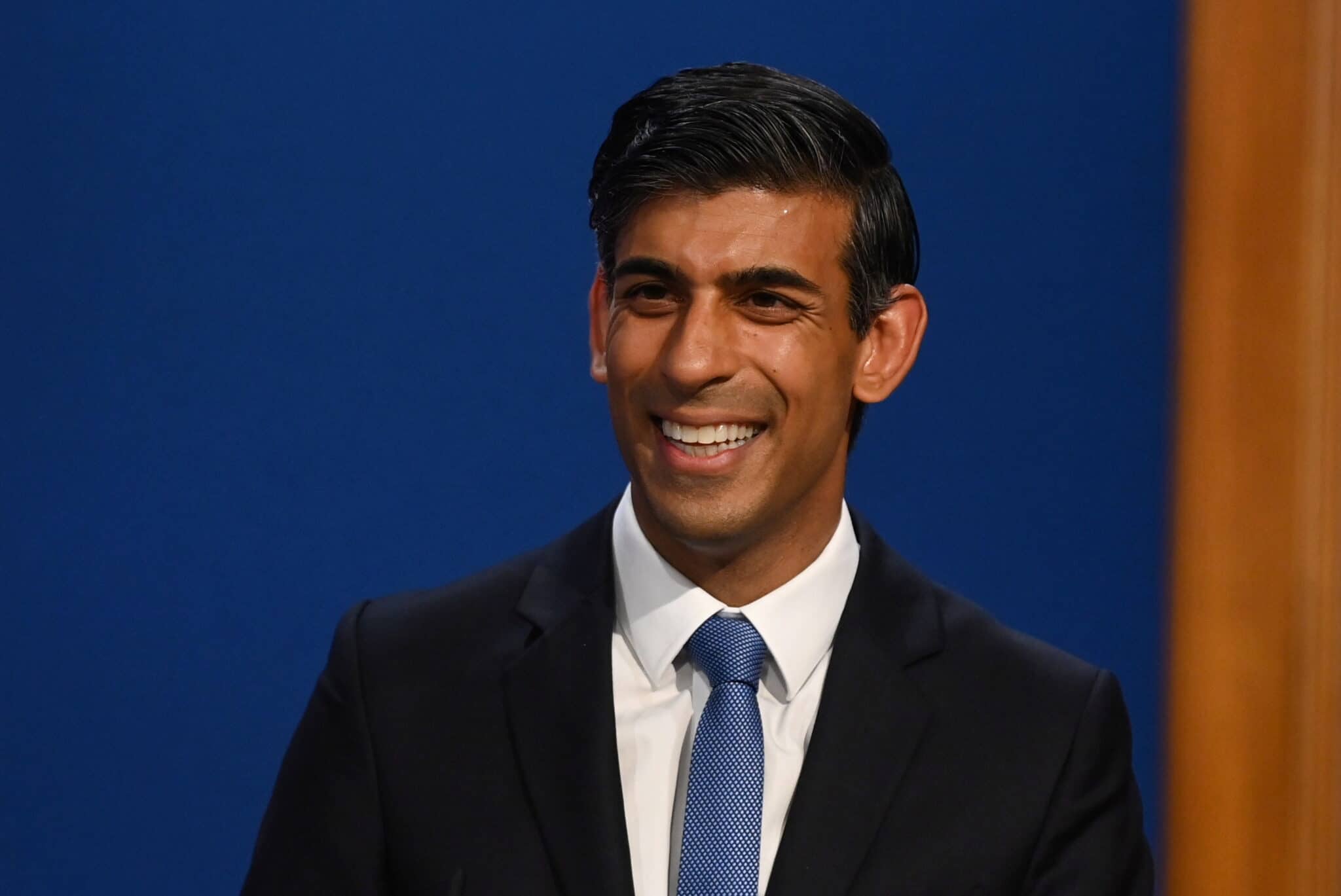
Rishi Sunak. (Toby Melville-WPA Pool/Getty)
Furthermore, he called on people to have “respect” for cis women who are “anxious that some of the things they have fought really hard for and rights that are important to them will be eroded”.
Much like Liz Truss, Rishi Sunak has embraced vague rhetoric about LGBTQ+ lives in a bid to win support from a small-but-vocal group of trans-exclusionary “feminists”. When it comes to policy, he doesn’t fare much better. He was condemned by HIV activists in 2021 when he failed to announce plans to finance the HIV Action Plan despite the fact the government has committed to ending transmission by 2030.
Other than that, it’s not easy to figure out exactly where Sunak stands on LGBTQ+ policy issues. Few would have any hope he plans to reform the GRA, given the party’s overarching approach to trans people in recent years. It’s also unclear whether he would push ahead with a fully-inclusive conversion therapy ban – former equalities minister Mike Freer seems to be under the impression he would ban the practice for trans people.
Sunak might not have quite the same level of experience in LGBTQ+ policy as Truss, but what’s clear is neither candidate would be likely to radically transform queer life in the UK if they were to become prime minister.
Both have shown they’re committed to weaponising trans rights to win support, and they aren’t afraid to use LGBTQ+ people as a political punching bag when the opportunity presents itself.

